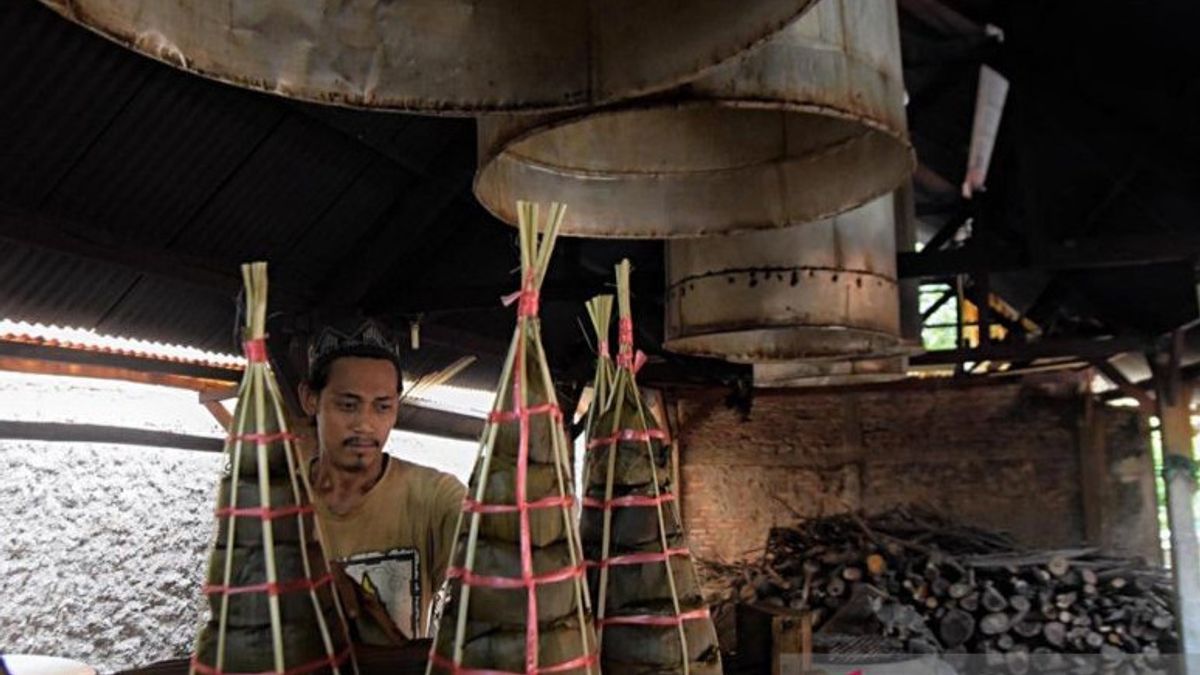Bekasi Regency - Ahead of the Chinese New Year, a typical Chinese New Year dodol producer was flooded with orders from customers and the public, one of which was Ester (54) from Kebon Kelapa RT 03/09, Karakasih Village, North Cikarang District, Bekasi Regency, West Java, because she was able to maintain recipes for hereditary heritage.
"Thanks to the hereditary heritage recipe that I have forwarded from my in-laws since 1993, many old customers have ordered other than there are also new buyers," said Ester in Cikarang, quoted from ANTARA, Sunday, January 26.
He said the decades-old business continued to be occupied while maintaining the traditional concept in the production process as one of the main heritages of this family business.
The traditional production process uses firewood as a cooking medium. Likewise with cooking methods which all use manual techniques from the hands of workers.
"On average people still want traditional ones because of the tools and materials as well as the burning process of wood so that it smells good," he said.
The process of making this dodol begins by cleaning raw materials, then washing rice flour and mixing it with cooked sugar. After that, the dough is molded and then steamed until cooked.
Ahead of the Chinese New Year celebrations 2576 Kongzili which will fall on January 29, 2025, this request for family business orders is starting to increase and is expected to continue to soar until it approaches celebrations.
He said the increase in demand for dodol had become a tradition every time before the New Year celebration. As a result, they began to boost production to meet market demand from within and outside the city.
SEE ALSO:
In addition to circulating in Bekasi Regency, the dodol produced by his family was also sent to permanent customers from outside the city such as Jakarta, Bogor, Karawang, Bandung to Pambuukan.
"To meet customer demand ahead of the Chinese New Year, we have now produced dodols in the size of tons of kilograms on normal days. Tens of millions of turnover per day," he said.
He has even anticipated an increase in the number of orders by adding employees to 12 people who produce at any time from the beginning only 10 people.
"If there are employees from local residents, there are also those from Pebayuran District. If those from Pebayuran have been from generation to generation, initially from in-laws," he said.
Ester admitted that this year she faced challenges in the form of increasing the price of dodol raw materials until she was forced to adjust the selling price but still prioritized product quality.
"Gula, flour and glutinous rice. The raw material is only that. The prices have all gone up. It is forced to increase the selling price. Buyers sometimes understand, some bid. The price of dodol here is Rp. 32 thousand per kilogram. The composition dodol is also calculated per kilo but the price is different at Rp. 34 thousand," he said.
He still believes that by defending the traditional concept, the dodol he made with the trademark 'Light of Life' will continue to be a typical dish on the dining table during Chinese New Year.
"My hope is that it will continue and continue even though it still maintains traditional methods," he concluded.
The English, Chinese, Japanese, Arabic, and French versions are automatically generated by the AI. So there may still be inaccuracies in translating, please always see Indonesian as our main language. (system supported by DigitalSiber.id)
















